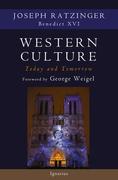
Tusquets editores
Ediciones Andanzas 2009
ISBN: 978-84-8383-136-6
Páginas: 576
Leonardo Padura (La Habana, 1955) trabajó como guionista, periodista y crítico, hasta lograr el reconocimiento internacional con la serie de novelas policiacas protagonizadas por el detective Mario Conde: Pasado perfecto, Vientos de cuaresma, Máscaras, Paisaje de otoño, Adiós, Hemingway, La neblina del ayer y La cola de la serpiente, traducidas a numerosos idiomas y merecedoras de premios como el Café Gijón 1995, el Hammett 1997, 1998 y 2005, el Premio de las Islas 2000 y el Brigada 21.
Cuando mi esposa me regaló esta novela me dijo: “Te va a gustar, es sobre Trotsky y su asesino Mercader del Río”. “Otra novela más sobre Trotsky –pensé–. ¿No bastará ya con la de Semprún y con la infinidad de artículos que se han escrito sobre el tema?” Pero a pesar de que tenía más de quinientas páginas y que les imponía un esfuerzo considerable a mis ojos gastados, me decidí a leerla.
Iván, un escritor cubano fracasado, convertido en auxiliar de veterinario, se encuentra en una playa del Este de La Habana con un extraño personaje, acompañado con dos magníficos lebreles rusos, un día de otoño 1977. Se granjea la amistad del extranjero quien le cuenta, en diferentes veces, que conoció a Ramón Mercader el asesino de Trotsky.
A partir de ahí vemos desarrollarse la contienda fratricida española. Las divisiones del lado “Republicano”: La guerra de influencias que deriva hacia un enfrentamiento sin cuartel entre Largo Caballero (el Lenin español) e Indalecio Prieto dentro del Partido Socialista, los comunistas adictos servilmente a Moscú, los trotskistas del POUM, los anarquistas… La política ambigua de Inglaterra y Francia. El comunista francés André Marty, encargado de las Brigadas Internacionales, que despreciaba a los españoles “ingobernables” e insultaba públicamente a La Pasionaria. Solo Stalin ayudaba directa y masivamente a estos indisciplinados combatientes con armas de todo tipo; tanques T26, aviones chatos y mosquitos, asesores soviéticos de toda clase que cada vez cobraban más importancia en esta guerra civil española. Hasta que Stalin, harto de los españoles y guiado por su política de acercamiento con Hitler, los dejó caer. Uno de aquellos asesores rusos, amante de María Caridad ve en su hijo a un elemento fácilmente maleable, marxista convencido, políglota, que podría servirle para acciones ulteriores. Así fue como El joven Ramón se fue con su mentor a Rusia a un entrenamiento despiadado que le borró su personalidad y lo convirtió en un ser proteiforme que no sería más que una fría máquina de matar.
Por otro lado, tenemos a Trotsky con Natalia su esposa. Exilado por Stalin, el terrible “hombre de acero”, primero en Alma Ata, luego en unas islas turcas, para terminar diez años más tarde en México pasando por Francia y Noruega. El antiguo compañero de Lenin, caído en desgracia y enemigo del nuevo Zar Rojo, no para de trabajar en la redacción de sus libros y en la creación de la “IV Internacional”. La pluma de Padura nos lo hace casi simpático si no fuera por el recuerdo de su actitud criminal durante la guerra civil rusa, unos años antes, cuando perseguía sin piedad a los blancos y aun cuando reprimió con la mayor violencia y crueldad a los marineros de Kronstadt que solo pedían el derecho al voto que él mismo defendió en su tiempo.
Mientras asistimos a las purgas y crímenes de Stalin, a los malogrados sueños y a los temores del “renegado” Trotsky, odiado por todos los comunistas del mundo, Iván, en Cuba, observa el deplorable estado y el continuo retraso de la Isla dominada por el miedo y la hipocresía. Se pregunta cómo ese extraño extranjero podía saber todo aquello sobre el asesino de Trotsky hasta que al final todo se aclara. Vemos de qué manera el antiguo seminarista había tejido su telaraña y la mano asesina de Mercader asestó el golpe que terminó con el “renegado”.
Extremadamente bien documentada, con una narración construida con mucha inteligencia, esta novela nos hace reflexionar sobre el sentido de la vida y sobre cómo una utopía que se proponía crear un mundo mejor, más justo, sin explotadores ni injusticias llegó a ser, en los países en que se intentó realizarla, una imagen del infierno.
Reseña de Abelardo Pérez García
- Hits: 8305

